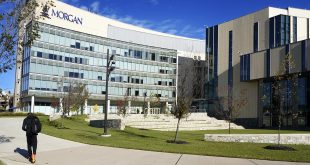Dear Director Collins:
I am writing concerning the recent study of the National Institutes of Health (NIH) grant applicants, which was conducted by Donna Ginther, et al, and published in the recent issue of Science. As you are aware, that study highlighted the significant disparity in the success rates of African-American scientists who apply for NIH grants versus those of whites and other groups. I commend NIH for funding this important study.
Your response to that study, co-authored with Lawrence Tabak, notes a number of changes that are being made in the NIH review process, as well as other actions being taken that are designed to ensure equity in the review of grant applications. These actions are critically important in order to restore the confidence among many African-American and other scientists—particularly those at institutions like Morgan State University—that they have a level playing field when applying for NIH funding. I am pleased that you are exercising the leadership required to make these necessary changes. As you noted in your article, race notwithstanding, an important factor in the relatively small number of grants awarded to African-American scientists is the paucity of African-Americans who hold advanced degrees in the sciences. The Ginther study found that only 1.4% of all applicants between FY2000 and FY2008 were black, and this is relatively close to 1.9% of individuals employed as biomedical scientists who are African-American in the United States.
While there certainly are aspects of the NIH review process, and, seemingly, the culture of the science community, that work to the detriment of African-American grant applicants, it is clear that the educational pipeline must also be addressed if our nation is to have a science community that reflects its rapidly shifting demographics. It is equally clear that the number of African-Americans obtaining degrees at all levels in engineering and the sciences must increase dramatically, and it is also true that they must be able to obtain excellent postdoctoral experiences. NIH funding is critical to achieve these outcomes.
Enter Historically Black Colleges and Universities (HBCUs). It is well documented that HBCUs contribute disproportionately to the number of baccalaureate degree recipients that subsequently obtain a doctoral degree in science and engineering. According to the National Science Foundation, nine of the top ten producers of undergraduates who have received doctorates in science and engineering in recent years were HBCUs. A number of these campuses are emerging as serious doctoral-granting research institutions and are now making significant contributions to the production of African-American doctoral degree holders as well. These institutions are important components of the educational pipeline and are magnets for scores of black students interested in becoming scientists.
Here at Morgan, for example, we are number three in the nation in producing African-American engineers, 9th in the biological sciences, 3rd in producing African-American doctorates, and 13th in the health sciences, to cite a few statistics. Prior to my becoming President at Morgan, I was a chancellor within the University of Wisconsin System, and prior to that, I was vice president at Auburn University for over a decade. I have also held a senior position at Rutgers. I can assure you that the quality of the education, and a high degree of the research that takes place at Morgan, is comparable to that at these campuses. But the amazing thing is that our professors are able to produce at high levels without comparable funding. I remain hopeful that the changes that you are spearheading at NIH will result in institutions like Morgan being more successful in winning grant support for our research proposals. To the extent that we receive additional support, additional contributions can be expected from us.
Again, I note that Historically Black Colleges and Universities have a long tradition of providing a supportive academic environment to students who may have some educational deficits or who need such an environment to give them the confidence to pursue a challenging field such as science or engineering. As the proportion of minorities in this country continues to increase, it is in our national interest to overcome the shortages of African-American scientists that are developing as a result of changing demographics. Providing additional support for researchers at HBCUs that offer the academic programs that help spur innovation, drive our economy, and promote a higher quality of life for all citizens would be a prudent investment for our nation.
In closing, my colleagues and I welcome the opportunity to meet with you to discuss some of our ideas for helping to remedy the growing shortage of scientists and engineers due to the significant under-representation of African Americans in these fields. I would be delighted to host you here at Morgan for such a discussion, or we can come to your office in Bethesda.
I look forward to your response.
Kind regards,
David Wilson
President
Morgan State University
 Morgan State University Newsroom Morgan State University
Morgan State University Newsroom Morgan State University




